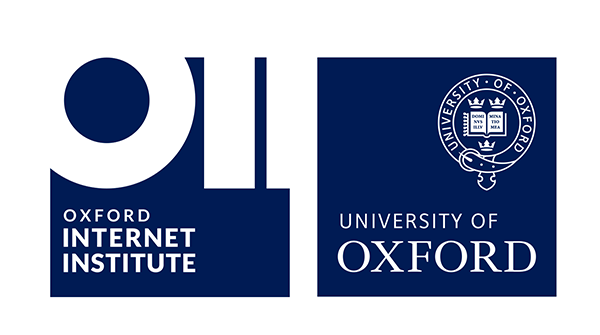The Oxford Internet Institute was founded in 2001 at the University of Oxford. This research center studies the societal implications of the Internet. The Oxford Internet Institute is a member of the World Internet Project. It conducts the Oxford Internet Survey every two years to measure the evolution of the digital society in Britain. The 2015 report should be out soon; in the meantime we suggest looking back at the highlights of the 2013 report.
Main results
The 2013 Oxford Internet Survey report reveals several key elements of the evolution of the digital society in Britain.-
The digital divide is shrinking
-
The cyber-moderates, the dominant category of Internet cultures
It distinguishes between e-mersives (12%), tehcno-pragmatists (17%), cyber-advised (19%), cyber-moderate (37%), and a-digitals (14%). Internet users are grouped into 5 categories according to their beliefs and attitudes: the largest category is the "cyber-moderates". The study underlines that cultures have largely evolved between the beginnings of the Internet where communities of Internet users were small and defined themselves as Internet pioneers, whereas since the beginning of the 21st century, the Internet has become a more complex and complex phenomenon.ème In the 19th century, the Internet culture spread to the general public. Some of the "pioneer" culture still exists, but other cultures have emerged; today the proportion of hackers is almost zero.
-
Beliefs and attitudes towards the Internet are stable
-
New generation internet users represent 2/3 of the users
-
Uses are slowly evolving
The use of internet and social media are complementary to traditional communication methods rather than replacing them. Nevertheless, they modify social relationships, notably by making it easier to meet new people.
-
Perceived benefits of Internet use increase among new generation users
-
"The government regulates the Internet sufficiently" in the eyes of users
-
Non-users are mostly by choice
Face-to-face interviews for an extensive approach to usage
Since 2003, the survey has been carried out every two years with 2,000 people ("core survey"), plus 500 people living in rural areas (booster sample) in face-to-face interviews at home. The interviews last about 40 minutes and cover the issues of use in an extensive way: use, skills, work, civic use, support and mediation. This methodology is rare because it is more expensive and more restrictive. It is nevertheless necessary when the duration of the interview exceeds 30 minutes.The questionnaires guiding the interviews are available and can be downloaded from the internet.
Some of the people in the sample are interviewed from one survey to the next. This method makes it possible to measure changes in beliefs or habits.
The scope of the survey includes England, Scotland and Wales.
Several typologies are proposed in the 2013 study: one corresponding to "internet cultures" (e-merged, moderate, interested in digital, pragmatic, a-digital), another differentiating between generations of users (non-users, ex-users, first generation, next generation). This work testifies to the in-depth analysis work carried out at each survey by the researchers of the Oxford Internet Institute.
A leading research institute on the societal aspect of the Internet
Founded in 2001, the Oxford Internet Institute is a department of the Social Sciences Division of the University of Oxford. As such, it hosts a research center, offers a Masters program The Social Science of the Internet since 2009, a PhD program Information, Communication and Social Sciences, and dissemination activities of research results to the public and private sector. It is one of the leading research institutes on the multidisciplinary study of the societal implications of the Internet in the UK, Europe and the world and is one of the influential members of the World Internet ProjectThe OII team is composed of 44 people, including 10 professors, 17 research fellows, 10 researchers, 5 research assistants, 3 post-docs and 3 PhD students. A data scientist is also part of the team. The multidisciplinarity, the international profiles and the means of the OII (10 million pounds sterling from the Shirley Foundation and 5 million from public funds) make it a reference research center.
Articles are regularly published and cited, and allow the research results to be valorized as they come in. The 8 research themes cover a broad spectrum of digital societal issues: Digital economies, Digital knowledge and culture, Digital policies and governments, Education, digital life and well-being, Ethics and philosophy of information, Geographic information and inequalities, Information governance and security, Social data science.





